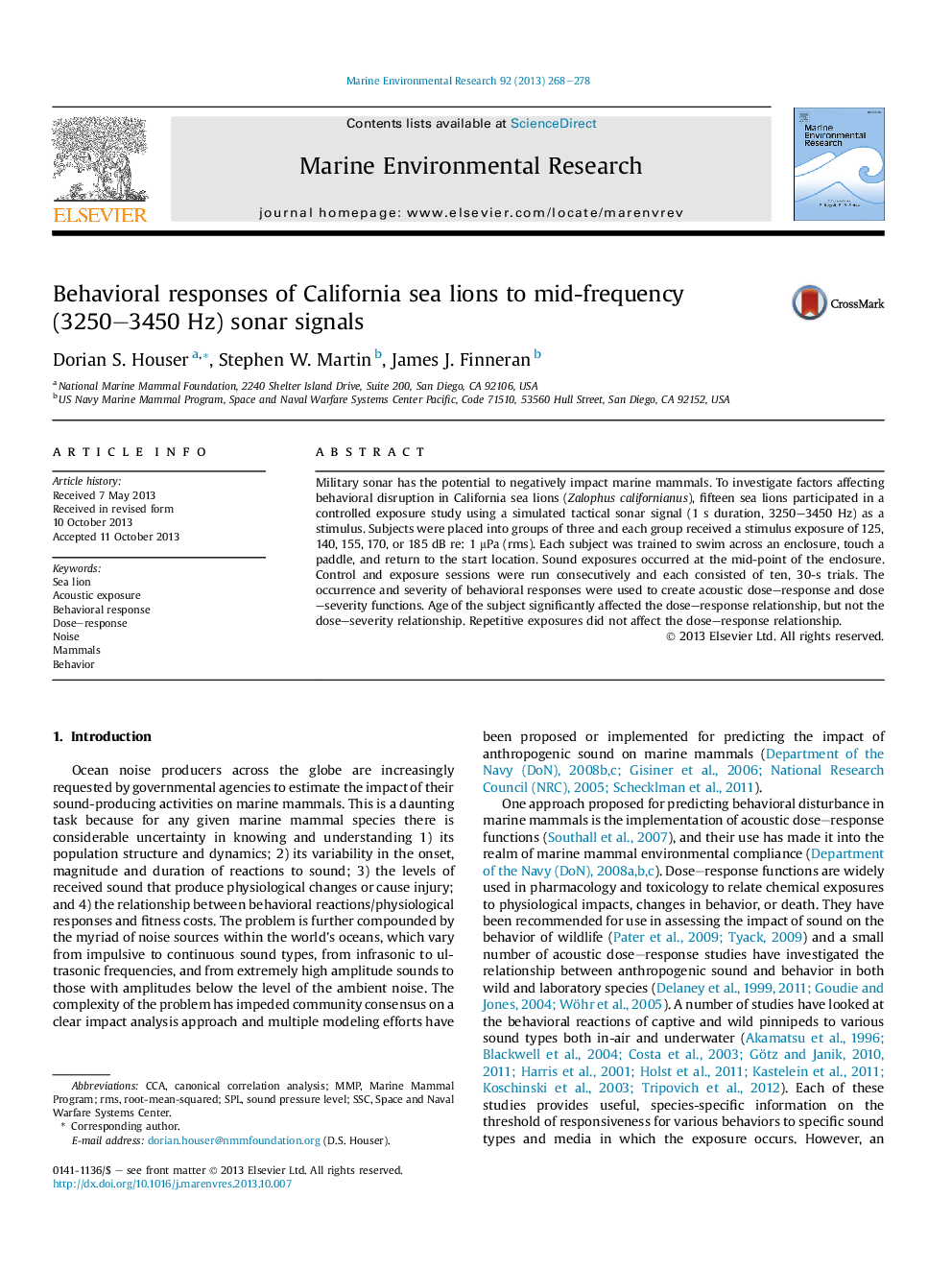| Article ID | Journal | Published Year | Pages | File Type |
|---|---|---|---|---|
| 6387899 | Marine Environmental Research | 2013 | 11 Pages |
â¢Sea lions show a dose-response relationship to increasing levels of sound exposure.â¢The severity of the response also increases directly with sound pressure level.â¢Sea lions did not demonstrate desensitization across repetitive exposures.â¢Age of the sea lion was a significant factor affecting the dose-response function.
Military sonar has the potential to negatively impact marine mammals. To investigate factors affecting behavioral disruption in California sea lions (Zalophus californianus), fifteen sea lions participated in a controlled exposure study using a simulated tactical sonar signal (1 s duration, 3250-3450 Hz) as a stimulus. Subjects were placed into groups of three and each group received a stimulus exposure of 125, 140, 155, 170, or 185 dB re: 1 μPa (rms). Each subject was trained to swim across an enclosure, touch a paddle, and return to the start location. Sound exposures occurred at the mid-point of the enclosure. Control and exposure sessions were run consecutively and each consisted of ten, 30-s trials. The occurrence and severity of behavioral responses were used to create acoustic dose-response and dose-severity functions. Age of the subject significantly affected the dose-response relationship, but not the dose-severity relationship. Repetitive exposures did not affect the dose-response relationship.
